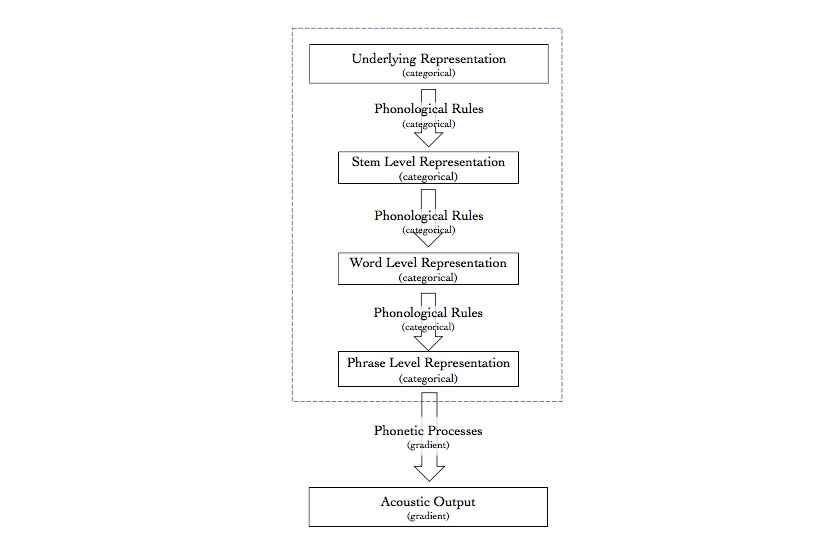Chapter 2: Phonological change in Philadelphia /ae/
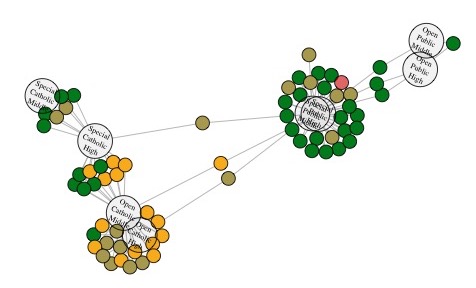 Read
Read
tl;dr: The traditional Philadelphia /ae/ split (PHL) is being replaced by an incoming Nasal /ae/ split (NAS). This change is stratified by school network.
Chapter 3: Allophonic analysis of traditional Philadelphia /ae/
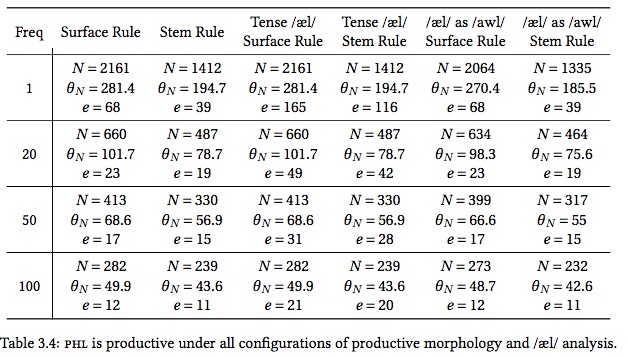 Read
Read
tl;dr: PHL is allophonic. Also, phonology can handle a precise and limited number of lexical exceptions.
Chapter 4: Intraspeaker variation in /ae/
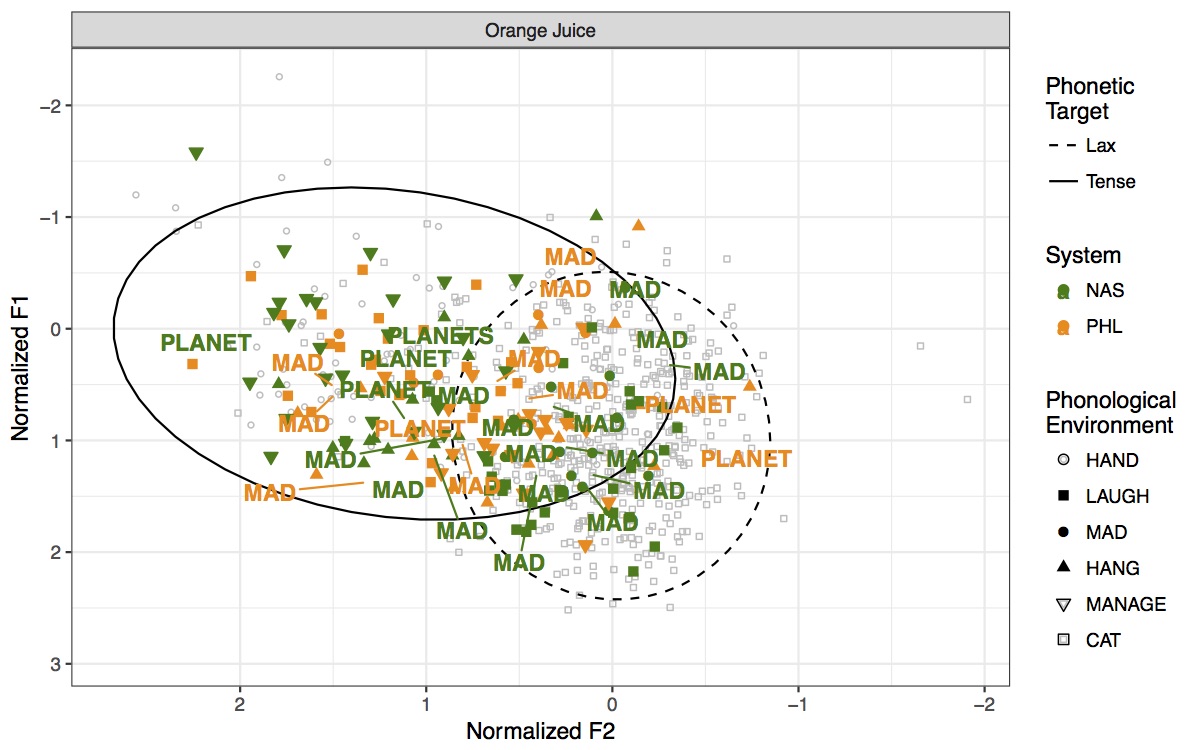 Read
Read
tl;dr: Intermediate speakers learn both allophonic systems, and produce variation between these systems as a whole.
Chapter 5: The social evaluation of abstract phonological structure
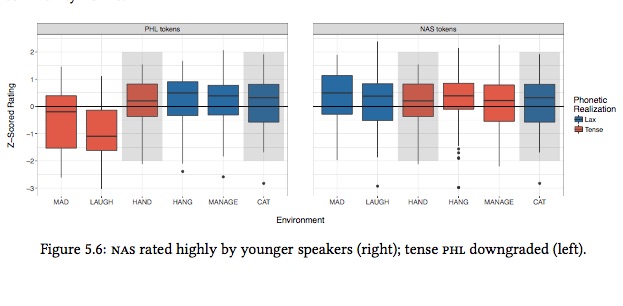 Read
Read
tl;dr: Listeners are attuned to a systemic social evaluation of both allophonic systems.
Chapter 6: The inevitability of phonological change
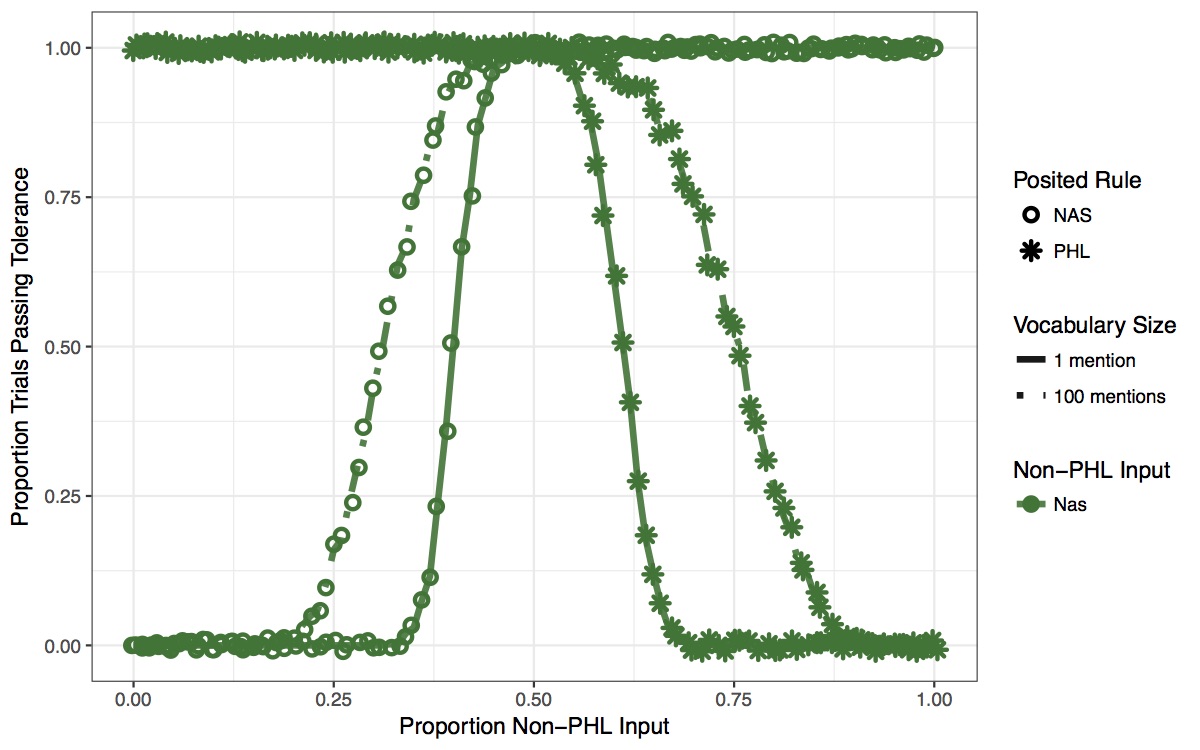 Read
Read
tl;dr: Even though NAS is simpler than PHL, it is not inevitable that NAS would come to replace PHL.
Chapter 7: Discusion and conclusions
 Read
Read
tl;dr: Community-wide phonological change occurs through grammar competition!
